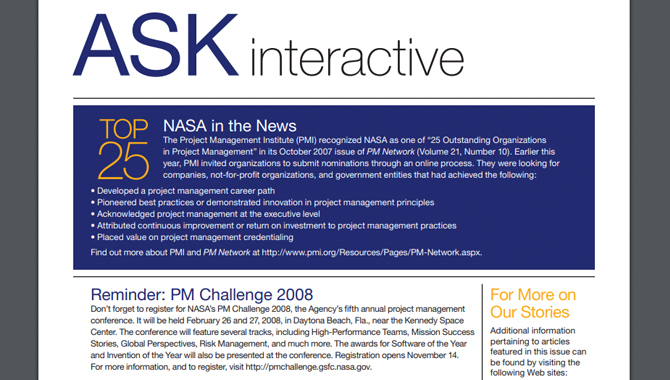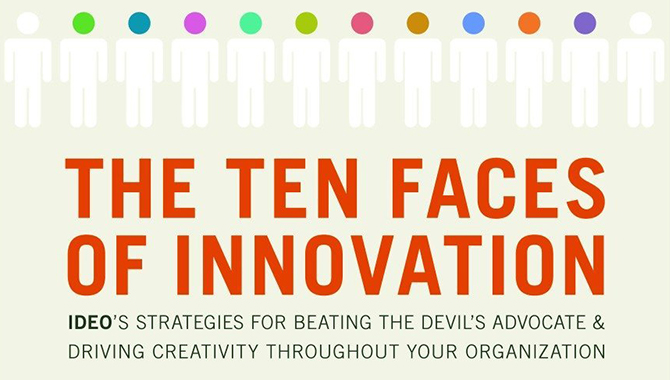By Laurence Prusak In our Western culture, to manage means to control. Especially in organizations, management of traditional resources like land, labor, and capital means being able to count and measure them, move them around, buy and sell them, and, in general, have complete control of them.
28

NASA in the News The Project Management Institute (PMI) recognized NASA as one of “25 Outstanding Organizations in Project Management” in its October 2007 issue of PM Network (Volume 21, Number 10).

Here is a description of a book that we believe will interest ASK readers.
By Ed Hoffman One issue has emerged as a common concern in my recent discussions with project practitioners representing a broad cross-section of public and private sector interests around the world. Are project failures increasing?
Don Cohen, Managing Editor Most NASA missions have majestic goals. The Apollo program that put men on the moon, the rover landings on Mars, flights to the outer planets, and the space telescopes and other instruments revealing truths about distant galaxies and the origin of the universe are tributes to the ambition, curiosity, and resourcefulness […]
By William H. Gerstenmaier A buzzing noise wakes you from your sleep. Opening one eye, you squint at your alarm clock: 3:00 a.m.
By Daniel W. Rasmus The workplace is changing in ways not due entirely to the introduction of new technology or new philosophies of management.
By Don Cohen John C. Mather was study scientist and project scientist for the Cosmic Background Explorer (COBE) and principal investigator for the Far Infrared Absolute Spectrophotometer (FIRAS) on that mission.
By Karl Iagnemma Let me tell you a story. When I was a young, eager PhD student at Massachusetts Institute of Technology (MIT) searching for a thesis topic, I would take long, late-afternoon walks around the Institute, hoping to stumble upon inspiration in the paint-scabbed hallways.





